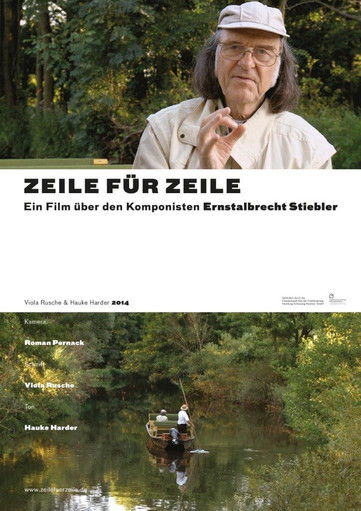Line by Line - a film on the composer Ernstalbrecht Stiebler
Genres
Documentary
OverView
A cello piece A punt ride Thoughts about music and composition The eight lines of Ernstalbrecht Stiebler’s cello piece Sequenz 2 alternating with his thoughts about slowness, space, reduction, repetition, resonance, liveliness and emotion A cinematic continuum
Others
Budget
$--
Revenue
$--
Status
Released
Original Language
German
Runtime
32 mins
Rating
0/10
Release Date
15 November 2014
Country
Germany

